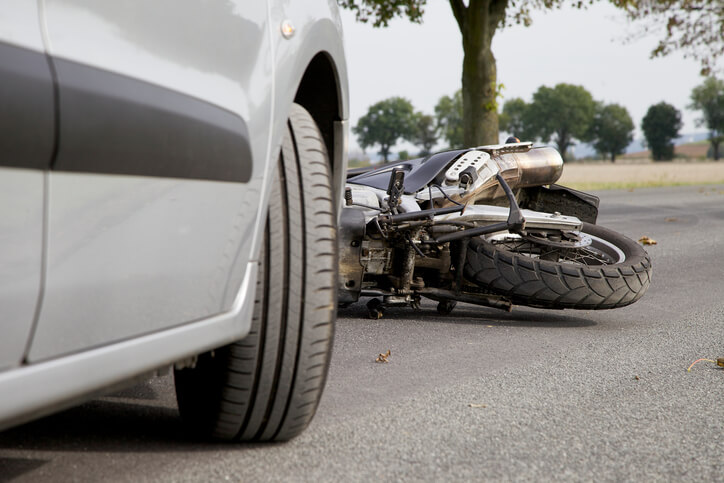Motorcycle Accident Advice For New Riders

“I just bought my first motorcycle, and I’m worried about my safety while sharing the road with other drivers. What should I do if I’m in an accident?”
1. Check For Injuries
First, check for any injuries you may have. Try to stay calm as you assess yourself, even though your body might be in shock from the impact. If you aren’t injured, check on the other driver. If either of you have any injuries, call 911 immediately. The sooner you call for emergency medical assistance, the sooner you and/or the driver will be able to receive proper medical care.
2. Remain At The Scene
Regardless of whether or not either party suffered an injury, do not leave the scene of the accident. Be sure to exchange personal information as well as insurance information with the other driver. If possible, move your motorcycle out of the way of traffic to avoid further problems.
3. Exchange Information
When it comes to the exchanging of information, you need to take down their full name, home address, telephone number, driver’s license number, insurance information, and the registration number of the other party’s vehicle (also known as the tag number).
4. Report The Accident To The Police
Again, even if no one was injured, if the damage to either vehicle is greater than $500.00 you must call the police and report the accident. Do not engage and make comments to the other driver involved in the accident, despite any remarks they make to you. You can listen, of course, but to avoid arguing, do not respond to the other party. After such an incident, tempers can flare and it can lead to aggressive behavior.
5. Don’t Accept The Blame
Even though the accident may have been your fault, do not take the blame. Furthermore, if the accident wasn’t your fault, do not try to force the blame on the other person either. Instead, remain calm and collected as you wait for the police and/or any possible medical professionals to arrive at the scene of the accident.
6. Take Photographs
Don’t rely solely on your eyes and memory to describe and recall the specific details of the accident. Use your phone to take pictures of where the accident happened and the damage your motorcycle and the other vehicle. Be sure to also take notes of everything you can remember, such as what happened and why. For example, if the other driver crashed into you because they ran a red light or didn’t signal their merging or turning intentions properly, write down each detail. If you write it down just after it happened, the specifics of the accident won’t be so blurry as they would be a week later. In addition to the details you take note of, be proactive and approach any witnesses with questions about what they saw. Get their names addresses and phone numbers. If you have a voice recorder on your phone, use that tool to receive their answers and ask them to state their name and contact information.
7. Visit A Physician
Once the police arrive, follow their instructions and the necessary procedures they may ask you to be involved in. Lastly, go to the hospital or physician’s office and be further assessed for injuries if it’s suggested. You might have internal injuries, like a concussion, that you can’t diagnose on your own.
8. Contact A Motorcycle Accident Attorney
If you end up with a ticket, don’t argue with the police officer. Call the attorneys at 911 Biker Law for FREE information on your rights regarding the charges.
For more information, tips, and advice on what to do after being in an accident while on your bike, visit www.911bikerlaw.com.
Do you have a question for the expert? Email it to us at info@911bikerlaw.com and our attorneys can answer it next time.


